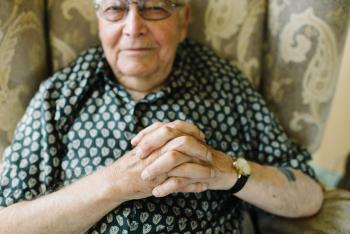Roy Madsen

West Side Stories
These oral histories chart the personal stories of individuals with a longtime connection to the west side of Kodiak Island, defined for the scope of this project as the area buffeted by the Shelikof Strait that stretches from Kupreanof Strait south to the village of Karluk. The project endeavored to create historical primary source material for a region that lacks substantive documentation and engage west side individuals in the creation of that material.
Roy Madsen was interviewed by Anjuli Grantham in Kodiak, Alaska, on June 11, 2015 as part of the Kodiak Historical Society’s West Side Stories project. Roy was born in 1923 in Alaska in the village of Kanatak on the Shelikof (now abandoned), where his Danish father ran a general store for the oil industry. He describes how his father established the Mush Bay bear camp on the west side of the island in 1929, as well as the other residents and canneries in operation then. He recounts the camp’s visitors, what camp work he and his siblings did, the fishing in the area, and the operations of the San Juan cannery and its tender. He describes how he also started guiding and fishing when he returned to the area after WWII, before going to law school for a career more compatible with family life. He touches on the impact of the Refuge establishment, his father’s promotion of Kodiak as a tourist destination, and his family’s native and ethnic backgrounds.
Please Note: The oral histories in this collection are protected by copyright and have been created for educational, research and personal use as described by the Fair Use Doctrine in the U.S. Copyright law. Please reach out Voices@noaa.gov to let us know how these interviews are being used in your research, project, exhibit, etc. The Voices staff can help provide other useful resources related to your inquiry.
The NOAA mission is to understand and predict changes in climate, weather, oceans, and coasts, to share that knowledge and information with others, and to conserve and manage coastal and marine ecosystems and resources. The Voices Oral History Archives offers public access to a wide range of accounts, including historical materials that are products of their particular times, and may contain offensive language or negative stereotypes.
Voices Oral History Archives does not verify the accuracy of materials submitted to us. The opinions expressed in the interviews are those of the interviewee only. The interviews here have been made available to the public only after the interviewer has confirmed that they have obtained consent.
